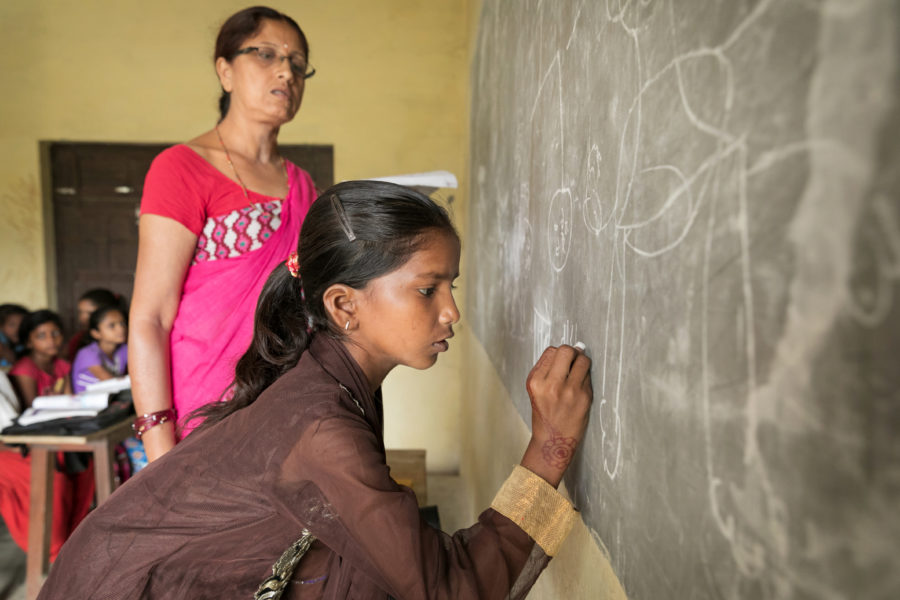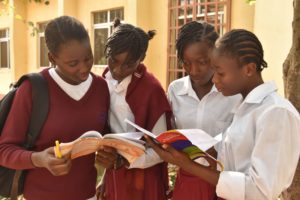13th October 2022
Girls’ education: measuring access and learning through the Global Objectives report

Today the Minister for Development Vicky Ford launches the Global Objectives report alongside colleagues from the Global Education Monitoring Report, the UNESCO Institute for Statistics, and the UN Girls’ Education Initiative, who jointly authored the report.
The report sets out the progress made against two objectives on girls’ access to education and their learning.
Improving girls’ learning remains our priority. Seven out of ten children in low- and middle-income countries cannot understand a simple text by the age of 10.
We know that low learning outcomes in low- and lower-middle-income countries are one of the main reasons for girls not completing 12 years of quality education. If children cannot read or do basic maths and they do not have the socio-emotional skills, they simply cannot move up the grades to learn more complex material. And like children anywhere, they become discouraged, start to feel they are unable to learn, and gradually slip out of the system. When learning outcomes are poor, lower value is placed on education and children are more likely to drop out of education and families are more likely to choose alternatives, leaving them vulnerable to violence, early marriage or child labour.
Under our G7 Presidency, the UK secured G7 endorsement for two Global Objectives to get 40 million more girls in school and 20 million more girls reading by age 10. Both by 2026. We have been working with partner countries to support their reform efforts, sharing best practice of what works and encouraging others to sign up to the Commitment to Action on Foundational Learning as part of efforts to encourage the international community to rally behind these objectives.

Crucially we are seeking a focus on the most marginalised girls and those who are most vulnerable, as a result of poverty, disability, conflict, displacement, and natural disasters, including climate-related crises. They are being left furthest behind. The Global Objectives are stepping stones to the 2030 targets of universal primary and secondary completion and minimum learning proficiency for all. They are also aligned with the National Benchmarks set by individual governments.
The report acknowledges that bringing 40 million more girls into school in the next 5 years will be hard. But importantly, it shows that it is possible.
And although progress on learning over recent years has been slow, the report shows how transformation on quality learning is possible.
So, reaching the Objectives is possible but they will take an enormous effort on a global scale. It will require effective policies, targeted interventions, and quality data. Some countries, such as Ghana, Kenya and Sierra Leone are leading the way to ensure that all girls are in school and learning. We can all learn from these champions for change.
We must also focus on getting the most marginalised girl into education in order to achieve the broader goal of gender equality. So that every girl, everywhere, no matter how isolated, how poor or how vulnerable she is, gets a safe and high-quality education and can build her own future. If we are all thinking about ‘that girl’ then the systems should ensure that all children are learning.